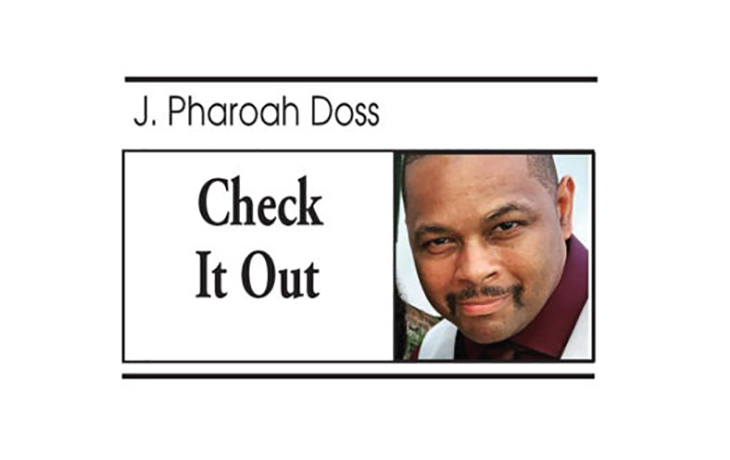TABIA LEE (Courtesy Photo)
Newsweek ran an item in July 2023 titled DEI college director fired for not being ‘right kind of Black person’. Tabia Lee, the director of the Office of Equity, Social Justice, and Multicultural Education at De Anza Community College, was fired due to the institution’s ideological resistance to Lee’s humanism in the classroom.
After being hired, Lee intended to adopt a humanist attitude inside the department, but she encountered an obstacle she had never faced before in her work.
Members of the department had already decided to “focus on whiteness” and “White supremacy culture,” and they expected Lee to follow suit.
Lee’s work environment became hostile after she invited speakers to campus to do “antisemitism education” and “Jewish inclusion education.” Lee undertook these initiatives when members of the community approached Lee’s department with concerns about the school’s Jewish students. Unfortunately, Lee’s humanist approach to DEI collided with her department member’s focus on White supremacy.
According to Lee, members of her department constantly referred to Jews as “White oppressors” and accused her of “elevating the wrong people.”
Lee sued her previous employer to reclaim her job, and her tale was widely publicized, but she has received no public backing from DEI supporters since she has been branded as the wrong kind of Black person.
If that’s the case, who is the right kind of Black person deserving of public support?
The Associated Press headlined last week: Harvard president Claudine Gay resigns amid plagiarism claims and backlash from antisemitic testimony.
Congressional Hearing
The House Committee on Education and Workforce invited the presidents of Harvard, MIT, and Penn to appear at an antisemitic hearing in December 2023 because their campuses were hotbeds of pro-Palestinian demonstrations that resulted in numerous complaints.
Claudine Gay, Harvard’s first Black president, had an exchange with Republican Elise Stefanik during the hearing that enraged half of the country.
Stefanik inquired of Gay whether she was familiar with the phrase intifada.
Gay heard the term and agreed with Stefanik that it meant violent struggle against Israel and Jewish genocide. During the Harvard rallies, slogans included “there is only one solution, the intifada revolution” and “globalize the intifada.”
Stefanik asked Gay, “Do you believe that type of hateful speech is contrary to Harvard’s code of conduct, or is it allowed at Harvard?”
“We embrace a commitment to free expression, even of views that are objectionable, offensive, or hateful,” Gay responded. “It is when that speech crosses the line into action that violates our anti-bullying and harassment standards.”
The exchange went on, but Gay refused to acknowledge that calls for the annihilation of Jews violated Harvard’s code of conduct.
After the hearing, billionaire and Harvard graduate Bill Ackman demanded the resignation of Gay, claiming that she was hired to achieve diversity and equitable goals.

Public Support
Days following Gay’s testimony, CNN reported that “the President of Harvard University apologized in an interview with the school’s student newspaper after facing widespread condemnation for her disastrous congressional testimony.”
“I am sorry.” Gay told the student newspaper. “Words matter.”
After her testimony, Penn’s president, whose statements were on par with Gay’s, was pressured to resign. As a result, Republicans and conservatives pressured Harvard to remove Gay from her post, but unlike the White President of Penn, Gay possessed the intersectional identities that would protect her from rightwing bigots.
Immediately, 500 Harvard faculty members signed a letter in support of Gay, urging her to resist the political pressures that were at odds with Harvard’s commitment to academic freedom.
Plagiarism
Conservative news sites investigated Gay’s scholarly publishing history. They discovered more than a dozen occasions in which Gay’s words appeared to closely resemble words, phrases, or sentences in other academics’ published papers.
The evidence of plagiarism ultimately led to Gay’s demise and resignation.
Despite her poor congressional testimony and plagiarism, Gay had more public supporters than Kamala Harris had when she ran for president. Since Claudine Gay was the right kind of Black person for the radical left, the entire progressive intelligentsia came to her defense and insisted Gay was unjustly targeted and pushed out by right-wing racists.
According to Rev. Al Sharpton, the right-wing attack on Gay was an attack on all Black women in America who were attempting to break through the glass ceiling. According to MSNBC, Claudine Gay’s case reflects a history of discrediting Black intelligence.
However, Tyler Austin Harper told the truth in The Atlantic when he wrote, “The true scandal is that so many journalists … were willing … to redefine plagiarism to suit their politics. Gay’s boosters have consistently resorted to Orwellian doublespeak—in a desperate effort to insist that lifting entire paragraphs of another scholar’s work, nearly word for word, without quotation or citation, isn’t plagiarism. Or that if it is plagiarism, it’s merely a technicality.”
Apparently, Claudine Gay is the right kind of Black person worthy of public support, but Tabia Lee’s humanist approach to DEI made her underserving. The Black intellectuals who think Tabia Lee is a discredit to her race also believe Claudine Gay can’t be a plagiarist because Black women don’t have the power to plagiarize.
Tyler Austin Harper is wrong about one thing: none of this is Orwellian; it’s just backwards.